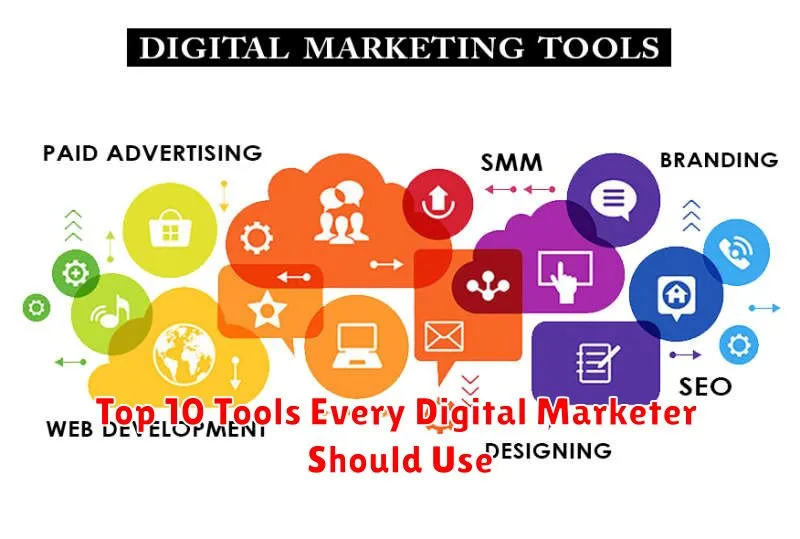In today’s rapidly evolving digital landscape, leveraging the right tools is paramount to success in digital marketing. Staying ahead of the curve requires more than just a strong strategy; it necessitates the effective use of tools that streamline workflows, analyze data, and optimize campaigns. This article explores the top 10 essential tools that every digital marketer should incorporate into their arsenal to achieve maximum impact and drive meaningful results. Whether you’re focusing on search engine optimization (SEO), social media marketing, content marketing, email marketing, or paid advertising, understanding and utilizing these digital marketing tools can significantly enhance your performance and propel your campaigns forward.
From keyword research and competitor analysis to social media management and data analytics, the right set of tools can empower digital marketers to make informed decisions, optimize their strategies, and achieve their marketing objectives. This curated list of the top 10 digital marketing tools encompasses a diverse range of functionalities designed to address various aspects of the digital marketing ecosystem. By mastering these essential tools, digital marketers can gain a competitive edge, streamline their workflows, and ultimately drive greater return on investment (ROI). This article delves into each tool, highlighting its key features, benefits, and how it can contribute to a successful digital marketing strategy.
Google Analytics
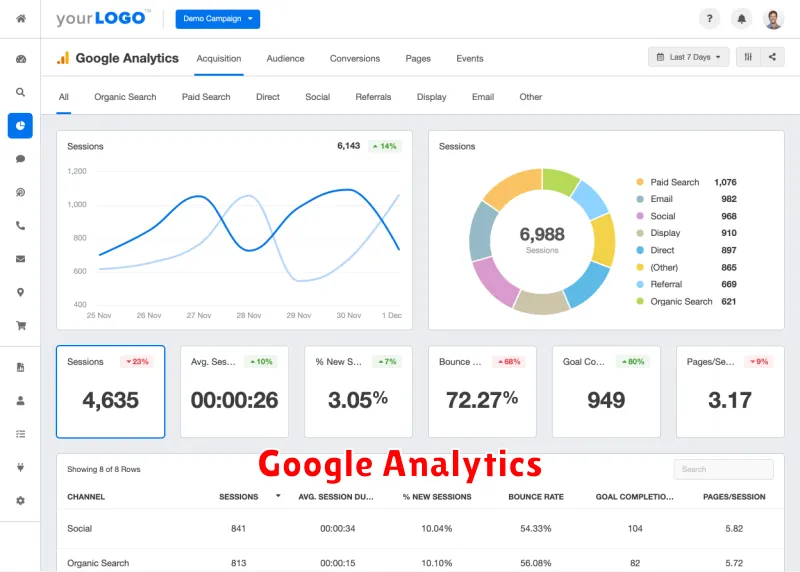
Google Analytics is a powerful and free web analytics platform that provides invaluable insights into website traffic and user behavior. It allows digital marketers to track key metrics such as website visits, bounce rates, conversion rates, and user demographics.
By analyzing this data, marketers can identify areas for improvement in their website’s performance, content strategy, and marketing campaigns. Understanding user behavior is crucial for optimizing the user experience and maximizing ROI.
Key Features:
- Real-time data reporting
- Audience analysis
- Acquisition tracking
- Behavior flow analysis
- Conversion tracking
- Customizable reports
With its comprehensive features and easy-to-use interface, Google Analytics is an essential tool for any digital marketer seeking to improve their online presence and achieve their marketing goals.
Ahrefs
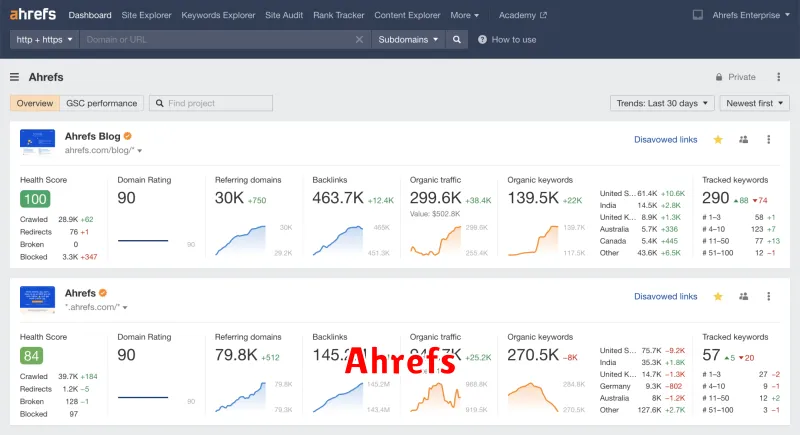
Ahrefs is a comprehensive SEO toolkit that provides digital marketers with the resources they need to improve their search engine rankings. It’s widely considered an industry standard for competitive analysis, allowing users to delve deep into their competitors’ backlink profiles, organic search traffic, and keyword strategies.
Beyond competitor research, Ahrefs offers a robust suite of tools for keyword research, allowing marketers to discover high-volume, low-competition keywords relevant to their business. Its site audit feature helps identify technical SEO issues that could be hindering website performance. Rank tracking allows you to monitor keyword rankings over time and assess the effectiveness of SEO campaigns.
Ahrefs’ Content Explorer tool helps marketers find popular content ideas within their niche, which can be invaluable for content marketing strategy. This powerful toolset makes Ahrefs a valuable asset for any digital marketer looking to gain a competitive edge in the search landscape.
Mailchimp
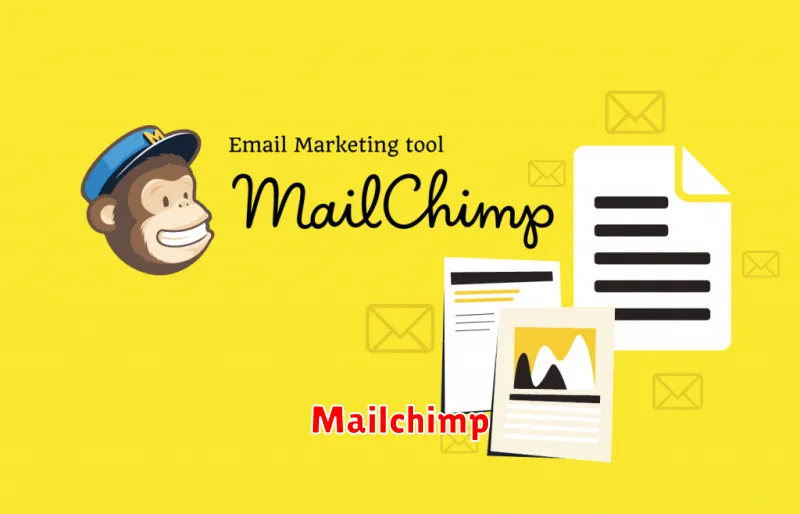
Mailchimp is a comprehensive marketing platform, particularly renowned for its email marketing capabilities. It empowers users to create, send, and analyze email campaigns effectively.
Beyond email, Mailchimp offers a range of other digital marketing tools, including:
- Landing page creation: Design and publish landing pages to capture leads and drive conversions.
- Social media advertising: Manage and track social media ad campaigns across various platforms.
- Marketing automation: Automate repetitive tasks and personalize customer journeys.
- Website builder: Create basic websites integrated with your marketing efforts.
With its user-friendly interface and robust features, Mailchimp is a valuable asset for digital marketers of all levels, from beginners to seasoned professionals. It facilitates streamlined campaign management, detailed performance tracking, and audience segmentation for targeted messaging.
Hootsuite
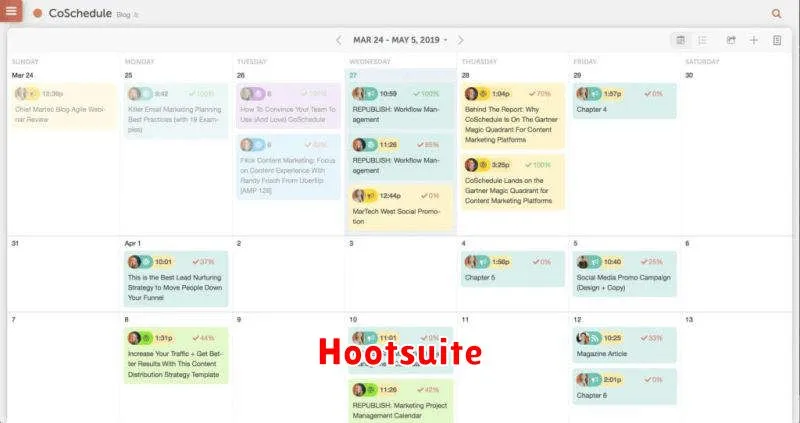
Hootsuite is a social media management platform that allows users to schedule and publish posts, engage with their audience, and analyze their social media performance, all from a single dashboard.
Supporting multiple social networks, Hootsuite streamlines workflows by enabling marketers to manage multiple accounts simultaneously. This saves valuable time and ensures a consistent brand presence across different platforms.
Key features of Hootsuite include:
- Post scheduling and publishing: Plan content in advance and automate posting.
- Social listening: Monitor brand mentions and industry trends.
- Analytics and reporting: Track key metrics to measure campaign effectiveness.
- Team collaboration: Assign tasks and manage workflows within teams.
Canva
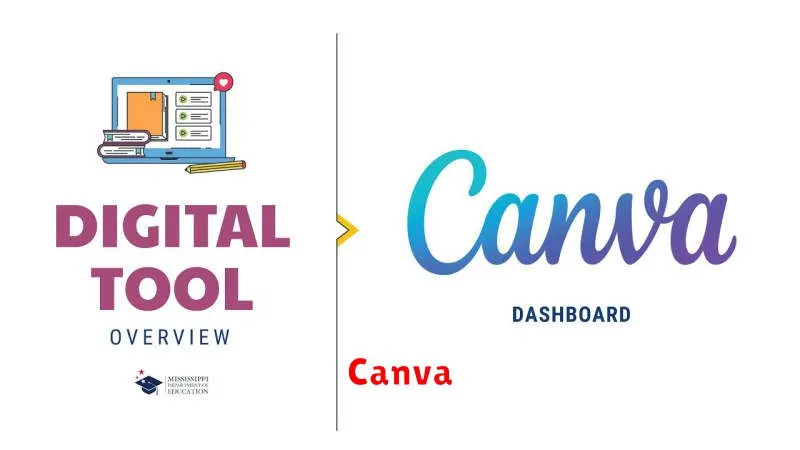
Canva is a user-friendly graphic design platform that empowers digital marketers to create visually appealing content without needing extensive design experience. Its drag-and-drop interface and vast library of templates, stock photos, fonts, and graphics make it easy to produce professional-looking designs for various marketing materials.
Key features Canva offers for digital marketers include creating social media graphics, presentations, infographics, marketing brochures, and website banners. It also provides options for team collaboration and brand kit management, ensuring consistency across all marketing efforts.
Canva significantly simplifies the design process, allowing marketers to save time and resources while maintaining high-quality visuals for their campaigns. Whether you’re designing a simple Instagram post or a complex presentation, Canva provides the tools and resources necessary for effective visual communication.
HubSpot
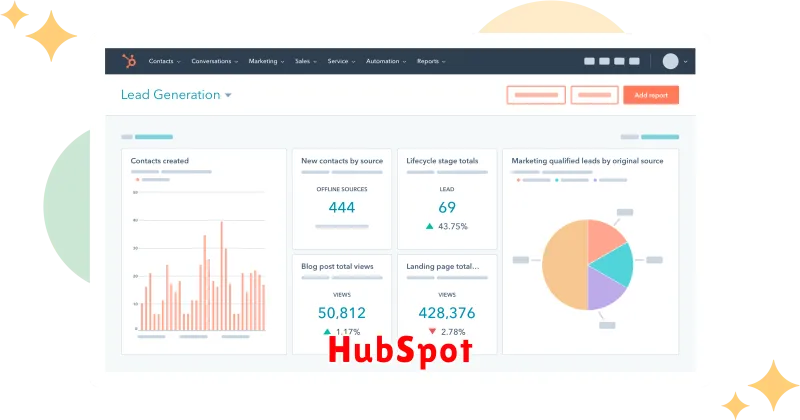
HubSpot is a powerful and comprehensive platform offering a suite of tools for various aspects of digital marketing. It’s known for its user-friendly interface and extensive features.
Key Features:
- CRM: Manage and analyze customer interactions and data.
- Marketing Automation: Streamline and automate repetitive marketing tasks.
- Sales Hub: Track leads and manage the sales pipeline effectively.
- Service Hub: Provide exceptional customer support and build lasting relationships.
- CMS Hub: Create and manage website content with ease.
- Operations Hub: Connect and synchronize data across your business applications.
HubSpot allows marketers to manage contacts, run email campaigns, nurture leads, track website analytics, and much more, all within a centralized system. While some features are available for free, more advanced functionalities require a paid subscription. It’s particularly beneficial for businesses seeking an all-in-one solution for their digital marketing needs.
SEMrush
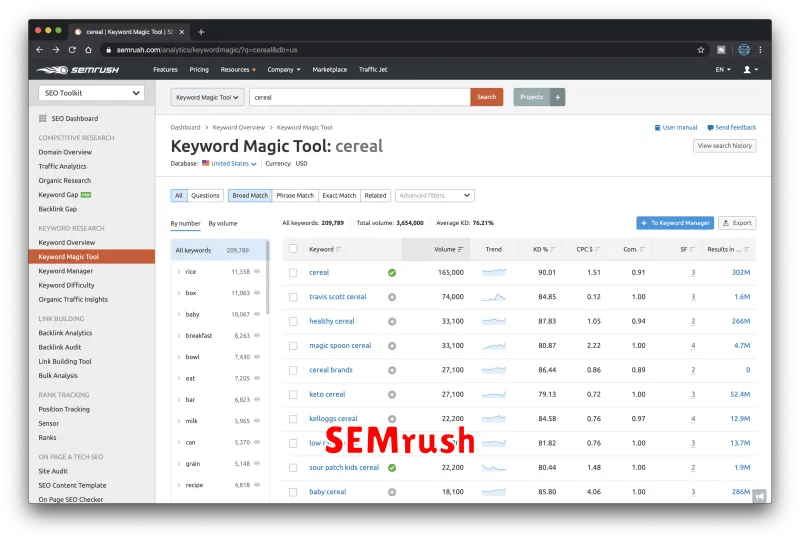
SEMrush is a comprehensive suite of tools designed to streamline and enhance digital marketing efforts. It provides solutions for SEO, PPC, social media management, content marketing, and competitive analysis.
With SEMrush, marketers can conduct keyword research, track their rankings, analyze backlink profiles, audit their website’s technical SEO, and research competitor strategies. Its extensive database and powerful features offer valuable insights for improving online visibility and driving organic traffic.
Key Features:
- Keyword Research: Discover high-potential keywords for organic and paid campaigns.
- Competitor Analysis: Identify competitor strategies, strengths, and weaknesses.
- Site Audit: Uncover technical SEO issues impacting website performance.
- Backlink Analysis: Analyze backlink profiles to identify opportunities and risks.
Trello
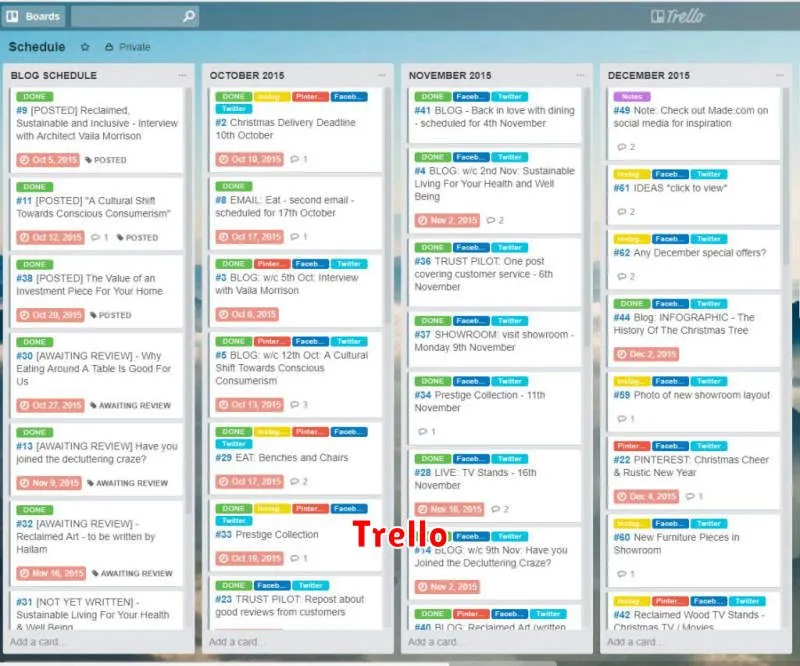
Trello is a highly visual project management and collaboration tool. It uses a Kanban-style board system where tasks are represented by cards, organized into lists, and moved across the board as they progress through different stages. This allows for a clear, at-a-glance overview of project status.
Key Features for Digital Marketers:
- Content Calendar Management: Plan and schedule content creation and publishing.
- Campaign Tracking: Manage all aspects of a marketing campaign from ideation to execution.
- Team Collaboration: Assign tasks, share files, and communicate within the platform.
- Workflow Automation: Streamline repetitive tasks through integrations and automation features.
Trello’s flexibility and intuitive interface make it suitable for managing various marketing projects, from simple content calendars to complex multi-channel campaigns. Its free tier offers ample functionality for small teams and individual marketers.
Zapier
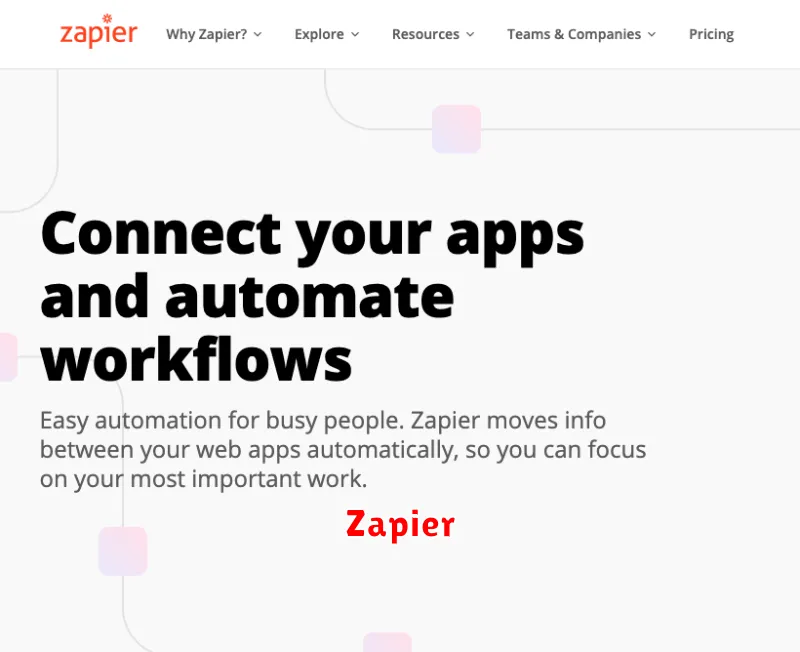
Zapier is a powerful automation tool that connects different web applications, allowing digital marketers to streamline repetitive tasks and improve overall workflow efficiency. Automation is key in today’s fast-paced digital landscape, and Zapier helps achieve this by creating automated workflows called “Zaps.”
A Zap consists of a trigger and one or more actions. When the trigger event occurs in one app, Zapier automatically performs the predefined actions in other connected apps. For example, you can set up a Zap to automatically add new email subscribers to your CRM, post new blog content to social media, or save form submissions to a spreadsheet.
By automating these mundane tasks, marketers can free up valuable time to focus on more strategic initiatives, such as content creation, campaign optimization, and data analysis.
Buffer

Buffer is a social media management platform designed to help marketers and businesses manage their social media presence efficiently. It’s primarily used for scheduling and publishing content across various social media platforms, including Twitter, Facebook, Instagram, LinkedIn, and Pinterest.
Key features of Buffer include:
- Post Scheduling: Plan and schedule posts in advance to maintain a consistent online presence.
- Content Calendar: Visualize your scheduled content and easily make adjustments.
- Analytics: Track the performance of your posts and identify what resonates with your audience.
- Engagement Tools: Respond to comments and messages from a unified inbox.
- Team Collaboration: Work seamlessly with team members to manage social media accounts.
Buffer simplifies the complexities of managing multiple social media accounts, making it a valuable tool for digital marketers seeking to streamline their workflow and improve their social media strategy.

